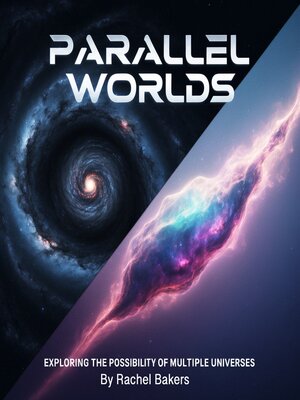Parallel Worlds
audiobook (Unabridged) ∣ Exploring the Possibility of Multiple Universes
By Rachel Bakers

Sign up to save your library
With an OverDrive account, you can save your favorite libraries for at-a-glance information about availability. Find out more about OverDrive accounts.
Find this title in Libby, the library reading app by OverDrive.



Search for a digital library with this title
Title found at these libraries:
| Library Name | Distance |
|---|---|
| Loading... |
This audiobook is narrated by a digital voice.
The concept of parallel worlds, once relegated to the realm of science fiction and philosophical speculation, has emerged as a serious consideration within modern physics, arising naturally from our deepest understanding of quantum mechanics and cosmology. The strange behavior of particles at the subatomic level, where objects can exist in multiple states simultaneously and where observation itself appears to influence reality, has led physicists to propose that our universe might be just one of countless parallel realities existing in a vast multiverse of infinite possibilities.
The foundation for parallel worlds begins with the fundamental mystery of quantum mechanics, specifically the phenomenon known as superposition. When particles are not being observed, quantum theory suggests they exist in all possible states simultaneously, like a coin that spins in the air being both heads and tails until it lands and we observe the result. The famous thought experiment of Schrödinger's cat illustrates this peculiar aspect of quantum reality, where a cat in a sealed box can be simultaneously alive and dead until someone opens the box to observe its state.
The mathematical formalism of quantum mechanics describes reality through wave functions, complex mathematical entities that encode all possible states of a quantum system. These wave functions evolve according to Schrödinger's equation, which is completely deterministic and reversible, yet when we make measurements, we observe only one specific outcome from all the possibilities contained within the wave function. This discrepancy between the smooth evolution of the wave function and the discrete, random outcomes of measurements constitutes what physicists call the measurement problem.







